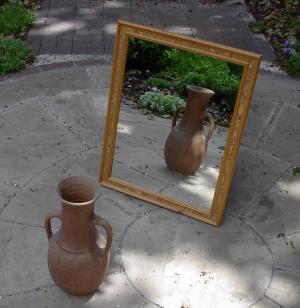 When I was last in London, I walked down a quiet road off Kensington High Street where I once lived and noticed that there is now a blue plaque marking the apartment building opposite my former home as a place where the poet T.S.Eliot once had a flat. This took me back to even older memories, of listening to Eliot read his own poems on a scratchy old 78 rpm record in my room when I was in my early teens. Eliot read very well, and I can still recite long passages from “The Waste Land”, “The Love Song of J. Alfred Prufrock” and above all, his luminous Four Quartets from memory.
When I was last in London, I walked down a quiet road off Kensington High Street where I once lived and noticed that there is now a blue plaque marking the apartment building opposite my former home as a place where the poet T.S.Eliot once had a flat. This took me back to even older memories, of listening to Eliot read his own poems on a scratchy old 78 rpm record in my room when I was in my early teens. Eliot read very well, and I can still recite long passages from “The Waste Land”, “The Love Song of J. Alfred Prufrock” and above all, his luminous Four Quartets from memory.
In “Little Gidding”, Eliot reminds us that any action we take, at any moment, may be
a step to the block, to the fire, down the sea’s throat
Or to an illegible stone: and that is where we start.
Or to an illegible stone: and that is where we start.
I choose to live in this spirit, as if everything matters, as if the Big Story is playing through the small diurnal dramas, and as if Death stands, always at my left shoulder, lending me his sharp-edged clarity that comes through the knowledge that any day may be our last and that we are accountable to a world beyond this one.
Eliot was as good in prose as in verse, and he offers a precept for living that I find exceptionally helpful: “If you haven’t the strength to impose your own terms upon life, you must accept the terms it offers you.” This requires us to withhold our consent when anyone offers us a version of reality that is less than generous and open to fresh possibilities.
I had to think about that this week in a rather genial context, when I ran into one of my favorite used book dealers opening his store very early while I was out walking my dogs. I asked, hopefully, if he had a new consignment of books. No, he explained, his building had sprung some leaks and he was there to wait for the plumbers. “Everything wears out,” he declared, “including the brain.”
I did not feel obliged to quarrel with this statement. As the owner of an old house, I know that certainly old plumbing wears out and old roofs spring leaks. Yet I was not going to endorse the notion that everything wears out, even if this appears to conform to the second law of thermodynamics as well as much of our everyday experience. Neuroscience instructs us that brain cells can grow back and that the neuroplasticity of the brain is so extraordinary that survivors of serious strokes can actually transfer functions from damaged areas to other parts. Of course, if you don’t want your brain to wear out you’d better use it!
I didn’t endorse the statement that everything, including the brain, wears out, and I didn’t deny it. I simply withheld my consent and adopted the agnostic position on the matter. There are many occasions when it’s rather more important to take this stance – for example, when someone asks us to agree to the proposition that “you can’t trust people”, or “there’ll never be enough to go round”, or pushes the bumper sticker philosophy that “shit happens”.
We are not required to argue or to preach when we withhold our consent from opinions and mindsets that turn our inhabited world into a box. We simply decline to join others inside their mind-made boxes, while we proceed to develop and impose our own terms on the world we inhabit.
To succeed in that, we’ll need not only to go around other people’s mind traps but to drop our own negative mantras. I’m fierce about that, as a teacher. When I hear anyone in one of my workshops committing a negative mantra (which may begin “I’m no good at -” or “I’ve never been able to -“) I ask them to go outside and spit that thought out on the ground. Fair’s fair. I tell my groups that if they ever catch me committing a negative mantra of my own, they can send me out of the room to do the same thing.

